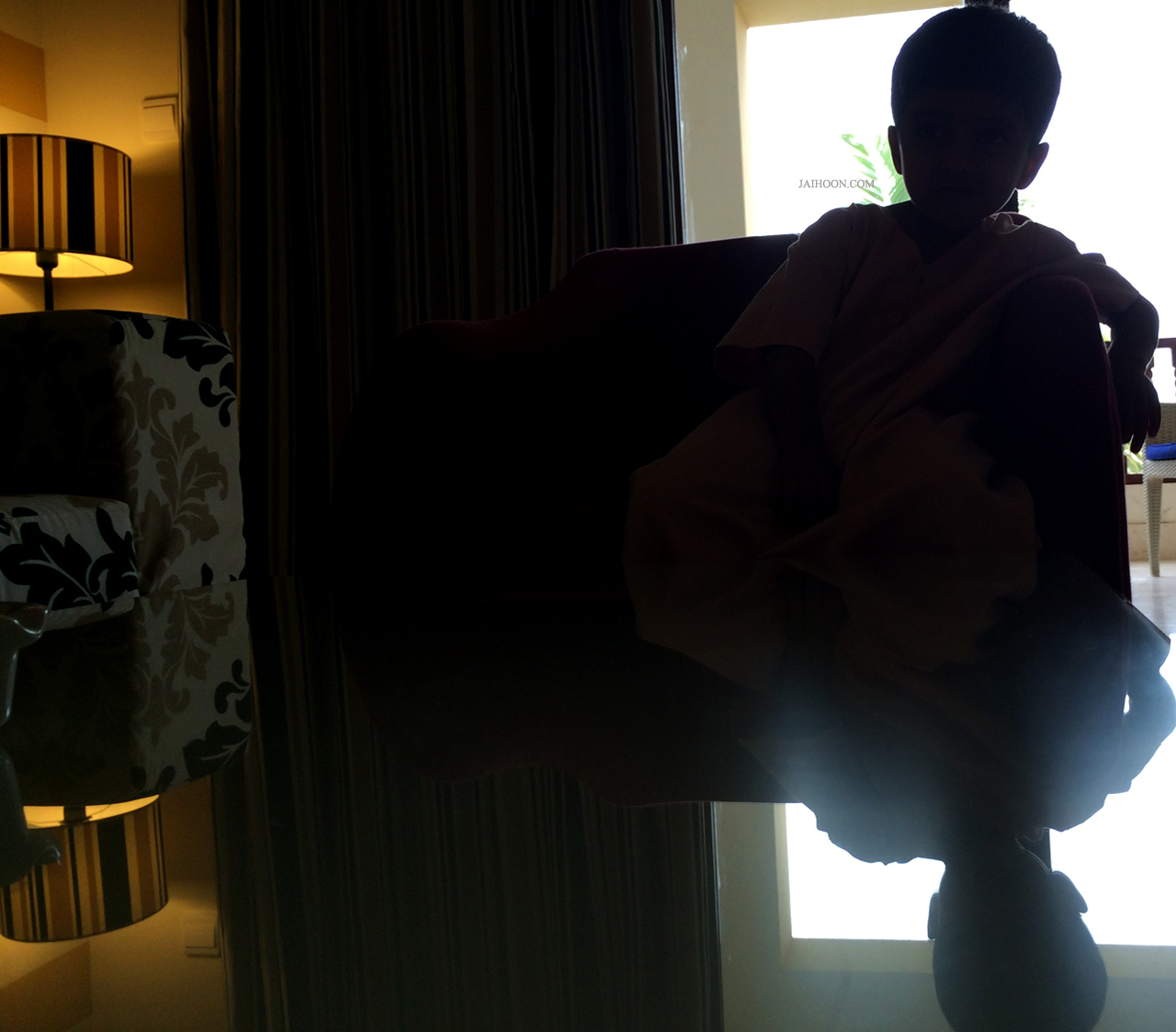The believer gets along with people and they feel comfortable with him. There is no goodness in the one who does not get along with people and with whom they do not feel comfortable
A celebrity out of Poverty
Which mother could see her child- who just survived a suicidal attempt- be taken away from her?
The Greed-blinded Towers
On the families torn asunder by soaring rents, fueled by the insatiable greed of their landlords.
Guidelines on how every Muslim should spend his day and night
By Hakimul Ummah Maulana Ashraf Ali Thanwi ( rahmatullahi ‘alayh )
Everyone spends his life-span but a pertinent question is: who fulfils the right of living?
Animals bereft of wisdom and intelligence also pass their lives. However, a human being endowed with wisdom and intelligence spends a much more excellent and superior type of life. Similarly, a disbeliever also passes the days of his life wandering in the darkness of misguidance and deviation. However, his life is quite different from that of a Muslim who lives a secure, smooth life in accordance with the guidelines of divine revelation. The day and night of a disbeliever is spent in spiritual darkness whereas a Muslim spends his day and night in spiritual light. Hence, a pertinent question arises: how should every Muslim spend his day and night so that his life could easily be distinguished from that of a disbeliever ?
Every Muslim should spend his day and night as follows:
1. Acquire knowledge of the Din according to your needs. You could acquire this knowledge either by reading a book or by asking the ‘ulama.
2. Abstain from all sins.
3. If you commit any sin, repent immediately.
4. Do not hold back in fulfilling anyone’s right. Do not cause anyone physical or verbal harm. Do not speak ill of anyone.
5. Do not have any love for wealth nor any desire for name or fame. Do not concern yourself with extravagant food and clothing.
6. If someone rebukes you for your mistake or error, do not try to justify your action. Admit your fault and repent.
7. Do not embark on a journey without any dire necessity. This is because many unconscious and unintended acts are committed while on a journey. Many good deeds are missed out, there is a shortcoming in the different forms of dhikr (remembrance of Allah), and you are unable to accomplish your tasks on time.
8. Do not laugh excessively nor talk excessively. You should take special precaution in not talking with ghayr mahrams (those with whom the observances of purdah is incumbent) in an informal way.
9. Do not go about repeating or mentioning an argument that may have taken place between two persons.
10. Always be mindful of the rules of the Shari’ah in everything you do.
11. Do not display laziness in executing any act of ‘ibadah.
12. Try and spend most of your time in seclusion.
13. If you have to meet and converse with others, meet them with humility and do not display your greatness.
14. Associate very little with rulers and those who hold high positions.
15. Stay very far from the irreligious people.
16. Do not search for the faults of others. Do not have evil thoughts about anyone. Instead, look at your own faults and try to put them in order.
17. You should be very particular in offering your salaat in the proper manner, at the proper time and with great concentration.
18. Always occupy yourself in the remembrance of Allah either with your heart or tongue. Do not be neglectful in this regard at any time.
19. If you experience any satisfaction in taking the name of Allah and your heart feels happy over this, then express your gratitude to Allah.
20. Speak in a nice and humble way.
21. Set aside specific times for all your different tasks and abide strictly to these times.
22. Consider whatever regret, sorrow or loss you may experience to be from Allah. Do not be despondent. Instead, think that you will be rewarded for this.
23. Do not think about worldly matters, calculations, profits and losses, etc. all the time. Instead, think about Allah.
24. As far as possible, try to help and benefit others irrespective of whether it be in worldly affairs or Dini matters.
25. Do not eat and drink too little to the extent that you become weak and fall ill. Nor should you eat and drink too much to the extent that you feel lazy in carrying out the different acts of ‘ibadah.
26. Do not have any desire or greed for anything from anyone except Allah. Do not allow your mind to wander towards any place thinking that you will be able to gain certain benefit or profit from there.
27. Be restless in your quest for Allah.
28. Be grateful for the favours that are bestowed upon you irrespective of whether they are plenty or few. Do not be depressed with poverty and destitution.
29. Overlook the faults and mistakes of those who are under your control.
30. If you learn of any fault of someone, conceal it. However, if the person plans to cause harm to someone else and you learn of it, then warn the other person beforehand.
31. Be in the services of guests, travelers, strangers, ‘ulama, and the pious servants of Allah.
32. Choose the company of the pious.
33. Fear Allah all the time.
34. Remember death.
35. Set aside a certain time daily wherein you should think about all your actions for that day. When you remember any good action, express gratitude. When you remember any evil action, repent.
36. Don’t ever speak a lie.
37. Don’t attend gatherings that are contrary to the Shari’ah.
38. Live with bashfulness, modesty and fornearance.
39. Do not be conceited by thinking to yourself that “I have a such-and-such qualities in me”
40. Continue making du’a to Allah to keep you steadfast on the straight path.
Some Humorous Talk of the Prophet
From Hayatus Sahabah (The Lives of the Companions)
“Abu Huraira radiallaahu ‘anhu said: That the companions of the Prophet sallallaahu ‘alayhi wa sallam said to him, ‘O Messenger of Allaah! Do you utter the words that excite comically?’ The Prophet said, ‘I speak nothing but that which is true’ (i.e. That is while in a jovial mood I never tell a lie) [Tirmidhi Chapter of Shamail p 17]
Anas ibn Malik radiallaahu ‘anhu said: A man came to the Prophet sallallaahu ‘alayhi wa sallam and asked him to give him a camel to ride on. The Prophet said, ‘I will seat thee on the young one of a camel.’ The man said, ‘Of what use for me will a young one of a camel be?’ The Prophet replied, ‘These camels are but the young ones of the she camels.’ [Abu Nauim, Ibn Asakir in al Munyakhab Vol V p142]
Aisha radiallaahu ‘anhaa said: That she accompanied the Prophet on a certain journey. At that time she was a mere girl and was neither fat nor bulky. The Prophet asked the people to move on, and they marched ahead. Then the Prophet said to me, ‘Come on, let us have a race’. Aisha says that she ran and remained much ahead of him. The Prophet kept quiet for some time. Later on when Aisha grew fat and loose bodied, she forgot the previous incident. Again she accompanied the Prophet on some journey. The Prophet again asked the people to march ahead, and they moved ahead. Then the Prophet again asked her to have a race with him. This time the prophet defeated her and she lagged behind. Now the prophet laughed and said, ‘This is in reply to our previous defeat’ [Ahmad, Safwat al Safwah Vol I p68]
Anas radiallaahu ‘anhu said: That someone asked him if the Prophet sallallaahu ‘alayhi wa sallam made jovial remarks. Ibn Abbas replied in the affirmative. Then the man asked him to tell him what type of jovial remarks he indulged in. At this Ibn Abbas said, ‘Once the Prophet sallallaahu ‘alayhi wa sallam gave a very loose shirt to one of his wives and asked her to wear it and to praise Allaah. He further asked her to walk around pulling its ends or skirts as a bride does.’ [Ibn Asakir and al Kanz Vol IV p43]
Anas radiallaahu ‘anhu said: That the Prophet sallallaahu ‘alayhi wa sallam said to him, ‘O man! Having two ears.’ [Al Bidayah Vol VI p46]
Numan ibn Bashir radiallaahu ‘anhu said: That Abu Bakr sought permission to enter the Prophet’s apartment. In the mean time he heard Aisha speaking in a louder voice that the Prophet sallallaahu ‘alayhi wa sallam. When Abu Bakr entered the apartment, he caught Aisha and said, ‘Beware! Now on I should never see you speaking thus’. He wanted to slap her. The Prophet held Abu Bakr by the waist and thus saved Aisha. Abu Bakr went out angrily. When Abu Bakr had gone, the Prophet said to Aisha, ‘Well, how did I save you from the man’. After a few days absence Abu Bakr again sought permission, and saw that both the Prophet and Aisha were at peace. Then he said, ‘Let me enter in your peace as I had entered in your dispute’. The Prophet said, ‘We do so, we do so.’ [Al Bidayah Vol VI p46]
Hasan radiallaahu ‘anhu said: That a certain old woman came to the Prophet and requested him to pray to Allaah to make her enter paradise. The Prophet said, ‘O mother of so and so! No old woman shall enter into paradise’. The narrator says that on hearing this the old woman went back weeping. The Prophet said to the people around him to go and tell the old woman that she would not enter into paradise as an old woman. (Tirmidhi) Then he recited the verse:
“Verily we! We have created those (maidens) by a creation and have made them virgins, loving, of equal age” Qur’aan 56: 35-37.

